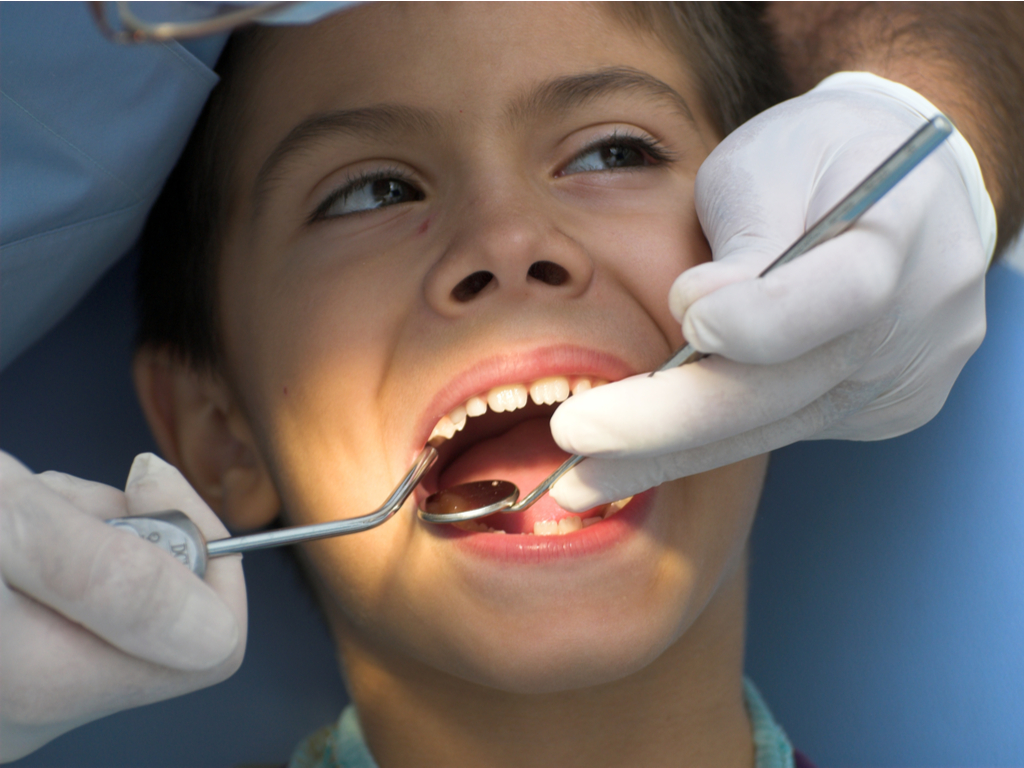Navigating Common Pediatric Dental Issues: A Comprehensive Appearance at Preventive Dental Take Care Of Children
Dealing with pediatric oral problems is important for cultivating long-lasting dental health and wellness in children. The value of precautionary treatment can not be overstated, as it lays the foundation for efficient dental hygiene techniques and dietary selections that reduce usual issues such as cavities and gum tissue disease. Recognizing when to start oral brows through and what practices to take on can equip moms and dads to take proactive actions. However, numerous moms and dads continue to be uninformed of the particular actions that can be taken to guard their kids's dental health and wellness. Checking out these strategies discloses critical understandings that may significantly influence their kid's future health.
Typical Pediatric Dental Issues
Kid's oral health is essential for their general health, yet countless issues can occur throughout their developmental years. Among the most common worries are cavities, typically known as tooth cavities, which can take place as a result of inadequate dental health and extreme sugar intake. If left untreated., this problem can lead to pain, infection, and subsequent problems.
An additional usual issue is malocclusion, where teeth are misaligned. This can arise from hereditary elements, very early loss of baby teeth, or thumb-sucking practices. Malocclusion might not just affect a youngster's appearance yet can likewise impair eating and speaking, demanding orthodontic intervention.
Gum tissue illness, although frequently overlooked, is an additional significant problem for kids (kid dentist near me). Gingivitis, the early stage of gum tissue illness, can arise from plaque accumulation and may cause more significant problems if ignored
Additionally, oral trauma prevails among energetic children, commonly resulting from falls or sporting activities injuries. Such incidents can trigger fractures or dislodgement of teeth, needing prompt care to stop lasting damage.
Identifying these usual pediatric oral concerns is critical for guaranteeing prompt treatment and preserving ideal oral health and wellness for children.
Value of Preventive Treatment
Precautionary treatment plays a crucial function in preserving kids's dental health and wellness and alleviating the threats linked with typical problems like tooth cavities, malocclusion, and gum tissue condition. By focusing on preventative actions, moms and dads can dramatically lower the likelihood of their youngsters experiencing these oral issues, which can cause pain, expensive therapies, and long-lasting health and wellness problems.
Routine oral examinations are vital for early detection of potential problems. During these sees, oral professionals can monitor the growth of jaws and teeth, offer customized recommendations, and apply needed precautionary therapies such as sealers and fluoride varnishes. These treatments assist safeguard versus degeneration and promote optimum dental wellness.
Furthermore, a strong structure in precautionary care promotes positive mindsets towards oral wellness in youngsters. By instilling healthy behaviors early, such as regular cleaning and the importance of a balanced diet plan, moms and dads can encourage lifelong methods that add to overall wellness.
Reliable Dental Hygiene Practices
Establishing efficient dental health practices is vital for guaranteeing that kids keep healthy and balanced teeth and gums throughout their developmental official website years. Moms and dads must start by presenting oral care as early as the eruption of the very first tooth. Utilizing a soft-bristled tooth brush with a tiny head, moms and dads should gently clean their kid's teeth two times a day with a fluoride toothpaste suitable for their age.

Routine oral check-ups, ideally every six months, assistance keep an eye on dental health and establish a routine of precautionary treatment. In addition, training children the significance of brushing for at the very least 2 mins, concentrating on all surface areas of the teeth, and making use of a timer or song can make the process pleasurable.
Urging kids to take duty for their dental health cultivates long-lasting behaviors. By instilling these techniques early, moms and dads can dramatically lower the threat of dental caries and gum tissue condition, leading the means for a life time of dental health and wellness.
Dietary Considerations for Dental Health And Wellness
While regular oral health is crucial for preserving oral health and wellness, nutritional options additionally substantially influence the condition of youngsters's gums and teeth. A well balanced diet plan abundant in vital nutrients can strengthen enamel and support total oral health and wellness.
Conversely, extreme consumption of sugary treats and beverages can cause dental cavity and tooth cavities. Microorganisms in the mouth feed upon sugar, generating acids that attack tooth enamel (kid dentist near me). Parents must encourage healthier treat alternatives, such as fruits, vegetables, and whole grains, while restricting sweet treats
Motivating youngsters to consume alcohol water, specifically fluoridated water, can better advertise oral wellness by washing away food fragments and counteracting acids. In recap, an all-round diet plan is an essential element of precautionary dental care for children.
When to Visit the Dental Expert
Routine dental gos to are important for maintaining optimal dental wellness in kids. The American Academy of Pediatric Dentistry suggests that children have their initial oral visit by the age of one or within six months after their first tooth erupts. Early brows through enable the facility of an oral home, promoting a trusting relationship between the youngster and the dental practitioner while promoting preventative care.
Routine visit the site exams need to happen every six months to check the advancement of the kid's teeth, assess dental hygiene practices, and use precautionary therapies such as fluoride varnishes and dental sealants. Additionally, moms and dads must arrange immediate consultations if they observe any signs of oral concerns, such as tooth pain, sensitivity, swelling, or discoloration, as these might suggest cavities or other issues needing prompt interest.
Kids with special healthcare requirements or a history of dental troubles may need even more frequent brows through. By adhering to these standards, moms and dads can aid guarantee that their kids keep a healthy smile and establish excellent dental practices that last a life time. On the whole, routine oral brows through are essential for early discovery and treatment, which can significantly influence long-lasting oral health and wellness end results.
Verdict
To right here conclude, attending to pediatric oral concerns via preventive treatment is essential for fostering lifelong oral health. Early intervention, coupled with effective oral hygiene practices and a balanced diet, considerably alleviates the threat of dental caries and gum tissue condition. Routine dental gos to play a critical role in the prompt recognition of potential problems, ensuring that children develop healthy habits from a young age. By focusing on these actions, moms and dads can add to their youngsters's total well-being and oral success.
